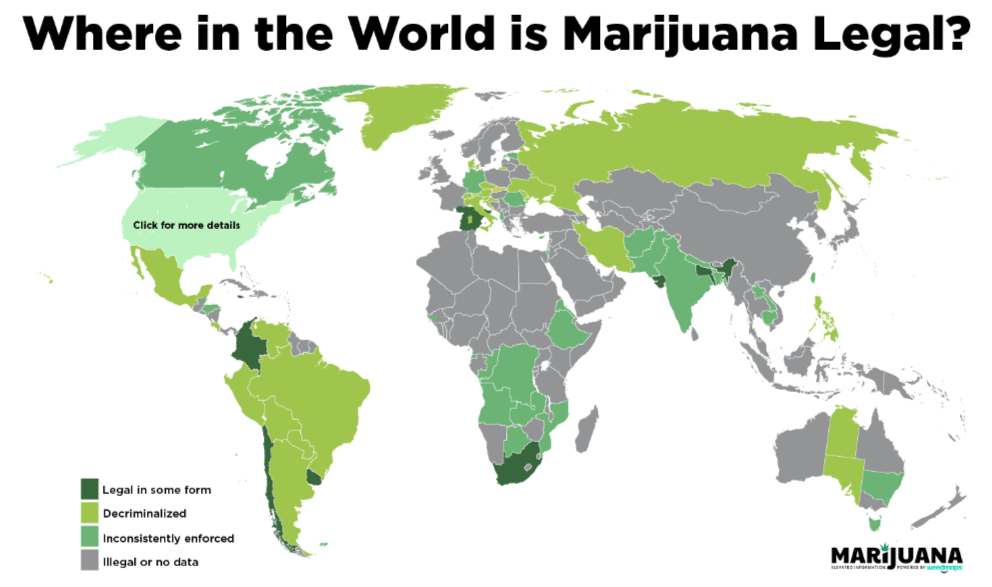
Cannabis, also known as marijuana, is a psychoactive drug derived from the cannabis plant. It is primarily used for recreational and medicinal purposes, and its legal status varies widely around the world. In some countries and regions, cannabis is legal for both medical and recreational use, while in others it is strictly prohibited.
Medical Marijuana Programs
Several countries and regions have established medical marijuana programs to allow patients to access cannabis for medicinal purposes. Some examples include:
Australia
The legal status of cannabis varies by state and territory. Possession and use of cannabis for recreational purposes is illegal at the federal level, but some states and territories have legalized the use of medical cannabis.
New South Wales, Victoria, Queensland, and the Australian Capital Territory: medical cannabis is legal for patients with certain medical conditions, but it must be prescribed by a doctor and obtained from a pharmacy or authorized supplier.
South Australia, medical cannabis is also legal, but it must be prescribed by a specialist doctor and obtained through the Special Access Scheme.
Western Australia: medical cannabis is legal, but it must be prescribed by a specialist doctor and obtained through the Western Australian Special Access Scheme. In addition, the government of Western Australia's Department of Health has also released a medicinal cannabis fact sheet to provide information on the use of medicinal cannabis in the state. The fact sheet includes answers to frequently asked questions about the availability and use of medicinal cannabis, as well as the processes and requirements for obtaining it.
Tasmania: medical cannabis is legal, but it must be prescribed by a specialist doctor and obtained through the Tasmanian Medicinal Cannabis Scheme.
Northern Territory: medical cannabis is legal, but it must be prescribed by a specialist doctor and obtained through the Northern Territory Medicinal Cannabis Access Scheme.
In addition to these medical cannabis programs, some states and territories have also introduced laws to allow for the cultivation of cannabis for medicinal or scientific purposes.
Asia
Israel: Medical marijuana has been legal in Israel since the 1990s, and the country has a thriving medical cannabis industry. Patients can access cannabis through licensed producers, and can consume it in various forms including smoked, vaporized, and as edibles or oils.
Thailand: recently legalized medical cannabis and is now one of the few countries in Asia to have done so. The government has granted licenses to several companies to cultivate and manufacture medical cannabis products, which will be available to patients with prescriptions from licensed medical practitioners.
The recent royal decree in Thailand has legalized the cultivation and possession of cannabis, as well as the import and distribution of the drug, for limited medical and research purposes. Eligible individuals and parties include patients with prescriptions, licensed medical professionals, health-related government agencies, state-registered agricultural community programs, and certified international logistics and transportation operators.
In order to import, cultivate, possess, or distribute cannabis in Thailand, individuals and entities must satisfy stringent requirements set forth by the government. It is important for those interested in conducting activities related to cannabis to consult with Thai government offices and law firms in order to ensure compliance with the country's laws on narcotics.
It is also recommended to avoid firms or individuals with questionable or inexperienced backgrounds in providing services for cannabis-related ventures or obtaining proper licenses for personal medical use.
North America
Canada: Medical marijuana has been legal in Canada since 2001, and in 2018 the country also legalized recreational cannabis. Patients can access medical marijuana through licensed producers, and can either smoke or vaporize the cannabis or consume it in the form of edibles or oils.
United States: Medical marijuana is legal in 36 states and the District of Columbia, although the specific regulations vary by state. In some states, medical marijuana is only available in certain forms (such as oils or pills), while in others patients can smoke or vaporize the cannabis.
Recreational Cannabis Laws
Several countries and regions have also legalized cannabis for recreational use, allowing adults to use the drug without a medical prescription. Some examples include:
Canada: As mentioned above, Canada legalized recreational cannabis in 2018, making it the second country in the world to do so after Uruguay. Adults can purchase and consume cannabis from licensed retailers, and can also grow a limited number of plants at home.
Uruguay: In 2013, Uruguay became the first country in the world to legalize recreational cannabis. Adults can purchase cannabis from licensed pharmacies, and can also grow their own plants at home.
Netherlands: While the possession and sale of cannabis has been technically illegal in the Netherlands since the 1960s, the country has a policy of tolerance towards the drug. As a result, cannabis is widely available in "coffee shops," and possession of small amounts for personal use is generally not prosecuted.
Prohibition
There are also many countries and regions where cannabis is strictly prohibited and possession, use, and sale of the drug are illegal. Some examples include:
Bali: Cannabis is illegal and possession or use of the drug can result in severe penalties, including imprisonment and fines. Despite this, cannabis is widely available in Bali and is often used by both locals and tourists.
China: Cannabis is illegal in China, and possession and use of the drug can result in severe penalties including imprisonment.
Saudi Arabia: Cannabis is illegal in Saudi Arabia, and possession and use of the drug can result in severe penalties including flogging and imprisonment.
United Arab Emirates: Cannabis is illegal in the UAE, and possession and use of the drug can result in severe penalties including imprisonment.
The legal status of cannabis varies widely around the world, with some countries and regions allowing medical and recreational use while others strictly prohibit the drug. As the global conversation around cannabis legalisation continues, it is likely that the legal landscape will continue to evolve.
